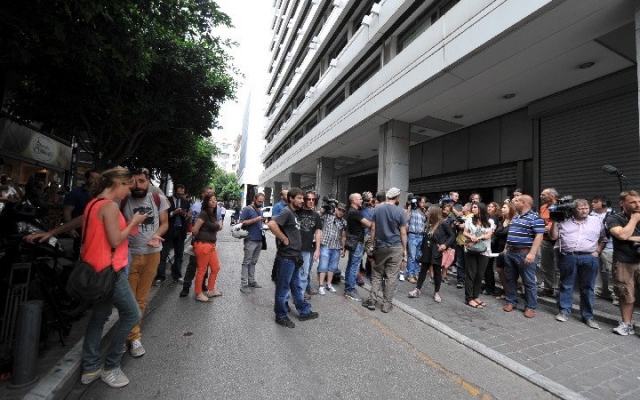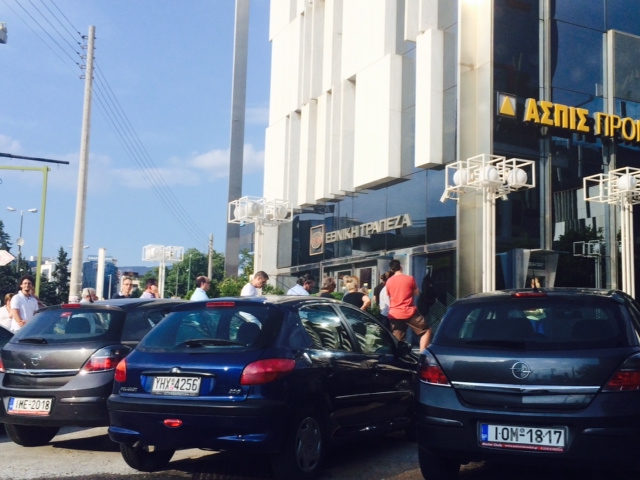18:50 The Greek government will meet at 20:00 hours to fix the problem with banks.
17:15 Following the ECB’s decision, interest shifted towards the Systemic Stability Council meeting, which started at 16:00. It is taking place at the Ministry of Finance, and is chaired by Yannis Varoufakis. The Bank of Greece governor, Yannis Stournaras, his deputy Yannis Mourmouras and the head of the Greek Bank Association, Louka Katseli, are also in attendance.

Greek and foreign journalists expecting Yannis Varoufakis in front of the Ministry of Finance
The Bank of Greece governor can offer at his discretion measures safeguarding the stability of the banking system, e.g. bank closures, capital controls, etc.
This afternoon, the ECB’s Governing Council decided to retain the limits for the financing of the Greek banks through the Emergency Liquidity Assistance rather than raise them.
It is believed that the imposition of capital controls is only a matter of time. Otherwise there is a risk to the stability of banks as ELA funding was not beefed up. There were again lines of people today in front of ATMs in Athens.

"The ECB will work closely with the Bank of Greece to maintain financial stability. Given the current circumstances, the Governing Council has decided to maintain the ceiling to the provision of emergency liquidity assistance (ELA) to Greek banks at the level decided on Friday (26 June 2015)," says the official release.
Meanwhile, the Ministry of Finance denied publications that in an interview for the BBC Yannis Varoufakis had said that Greece had been exploring the possibility of closing its banks tomorrow and imposing capital controls. Varoufakis said that the Greek government is against capital controls.
In fact Varoufakis says in the interview that it should be examined whether the authorities in Athens and Frankfurt will close the banks tomorrow; in his latest statements he tries to put the blame for what is happening on the shoulders of the Eurozone, without making clear what exactly might happen.
Given that the ECB has chosen not to provide higher liquidity to Greek banks, Greece has two choices: closing banks or imposing capital controls. Bank closure would prevent the leakage of funds, but at the cost of losses to the economy.
Capital controls would allow withdrawals from ATMs and payments subject to certain restrictions.
The imposition of capital controls should be decided by the government.
If the banks are closed, what should be done for them to reopen? If voters support the creditors’ proposal at the referendum – the answer is clear. But if they vote against, this will probably lead to bank nationalisations and firing up the money printing machine.
Any restrictions would hit the hardest those depositors, who have no choice but to keep their money in Greek banks. According to bank sources, the rich and powerful have long moved their money elsewhere.